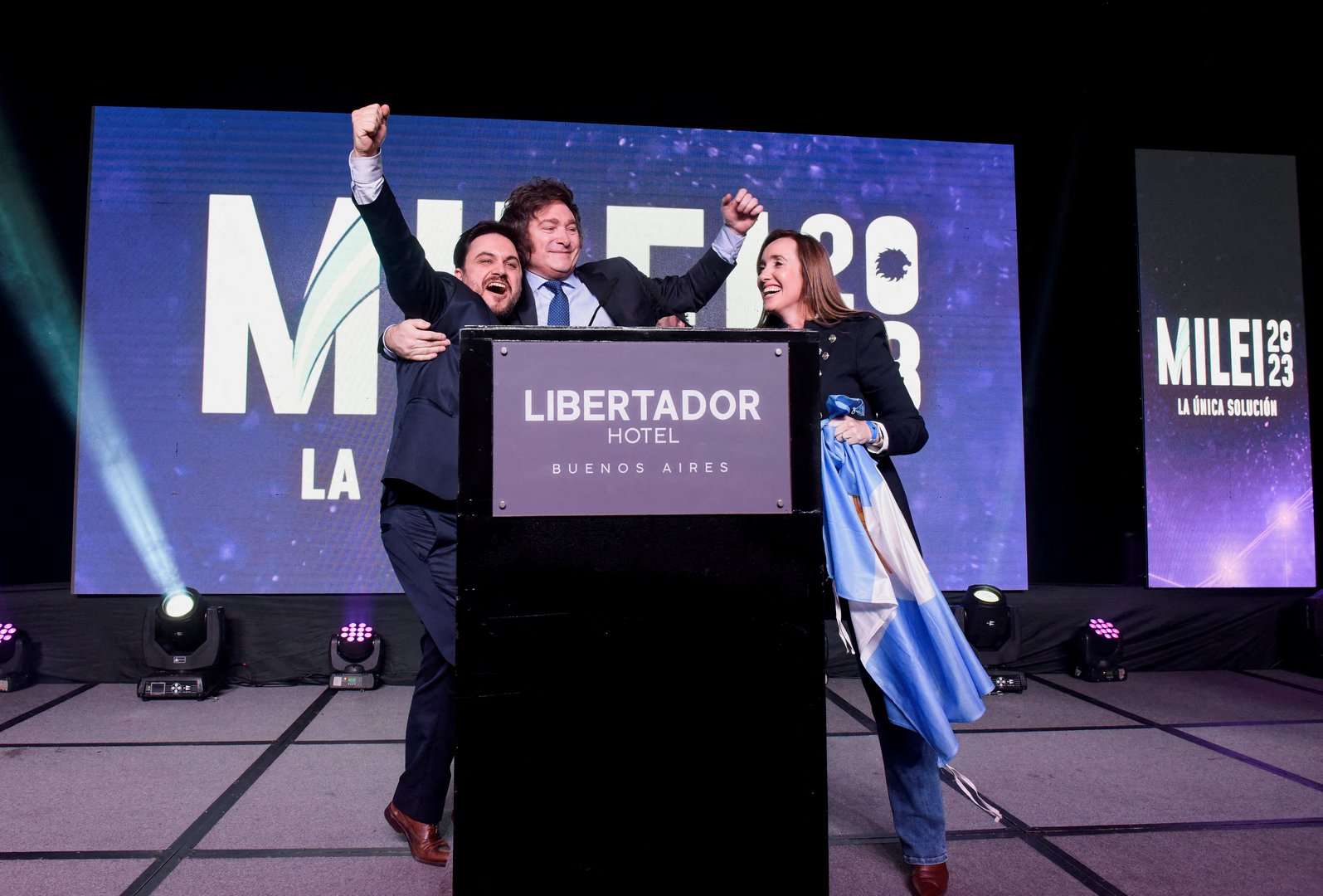Pressure built early on Monday on Argentina’s currency and stock market, after a far-right libertarian who wants to axe the central bank and dollarize the economy unexpectedly won a primary election.
Lawmaker Javier Milei shook up the race towards presidential elections in October by far outperforming forecasts to win some 30% of the vote, the largest share with over 90% of ballots counted.
Markets were betting on a strong performance by more moderate candidates, who had a bad night, in a ballot that acts as a dress rehearsal for the national election in two months’ time.
The outcome could weaken the peso currency in popular parallel markets on Monday and weigh on bonds, which have risen in recent weeks. Argentine stocks were meanwhile marked lower, with the Global X MSCI Argentina ETF ARGT.P down 4.3% in U.S. premarket trading.
Investment bank JPMorgan projected “mounting pressure on the exchange rate, resulting in a widening gap between the parallel and official exchange rate,” according to a note led by analyst Diego Pereira.
The official exchange rate stands at 287 pesos per dollar, while the free-floating rate is more than double that amount.
The U.S. bank recommended staying “market weight” on Argentina’s government bonds as the existing financial landscape “is set to deteriorate further.”
YEARS OF CRISIS
Against a backdrop of years of economic crisis, Argentina’s markets have long been wobbly.
After a similar primary election shock result in 2019, bonds and the currency crashed and remain in distressed territory, with the peso now held in check by capital controls the government has been unable to unwind.
Latin America’s third-biggest economy has been grappling with a severe economic crisis with sky-high inflation and falling central bank reserves. Gross reserves stand at $23.8 billion but net reserves, discounting liabilities, are over $8 billion in the red, according to private analysts.
Sunday’s win by Milei, a rock-singing economist, adds an extra unknown factor that could dent market confidence, though that could be tempered by the fact he still faces a tough fight in October and a likely November run-off, which would test his ability to win over more voters.
Goldman Sachs said in a note before the vote that Milei backs more “radical policy proposals” including dollarization and sharp spending cuts, and brought some uncertainty given his lack of an established political machine.
He will compete in a three-way race in October against former security minister Patricia Bullrich, who won the main conservative Together for Change nomination, and Peronist coalition candidate and Economy Minister Sergio Massa.
A candidate needs 45% of the Oct. 22 vote to win outright or 40% and a 10-point lead over second place. If there is no outright winner, as seems likely, a head-to-head vote between the top two candidates will be held in November.
“What we are left with is a much more uncertain scenario than the one we expected,” said Ricardo Delgado, director of the Argentine economics consultancy Analytica.
Argentina is the largest debtor to the International Monetary Fund, with a $44 billion programme approved March last year to refinance a 2018 loan. The latest programmes have failed to stop an economic crisis, with inflation running at over 100% and four out of 10 Argentines living in poverty.
The cash-strapped economy even had to tap a Chinese swap line and get a loan with Qatar to repay debt owed to the Washington-based lender, as discussions on the programme’s review dragged and further disbursements are now delayed.
Though the country recently reached a staff-level agreement with the Fund to unlock about $7.5 billion, the agreement still needs the executive board’s approval, which is expected in the second half of August.







Click here to change your cookie preferences